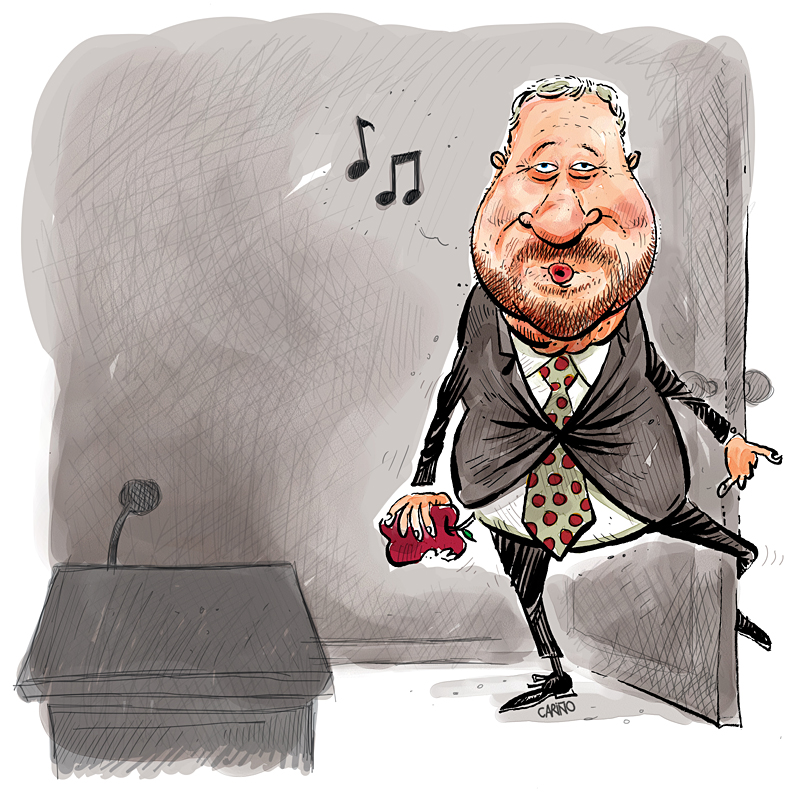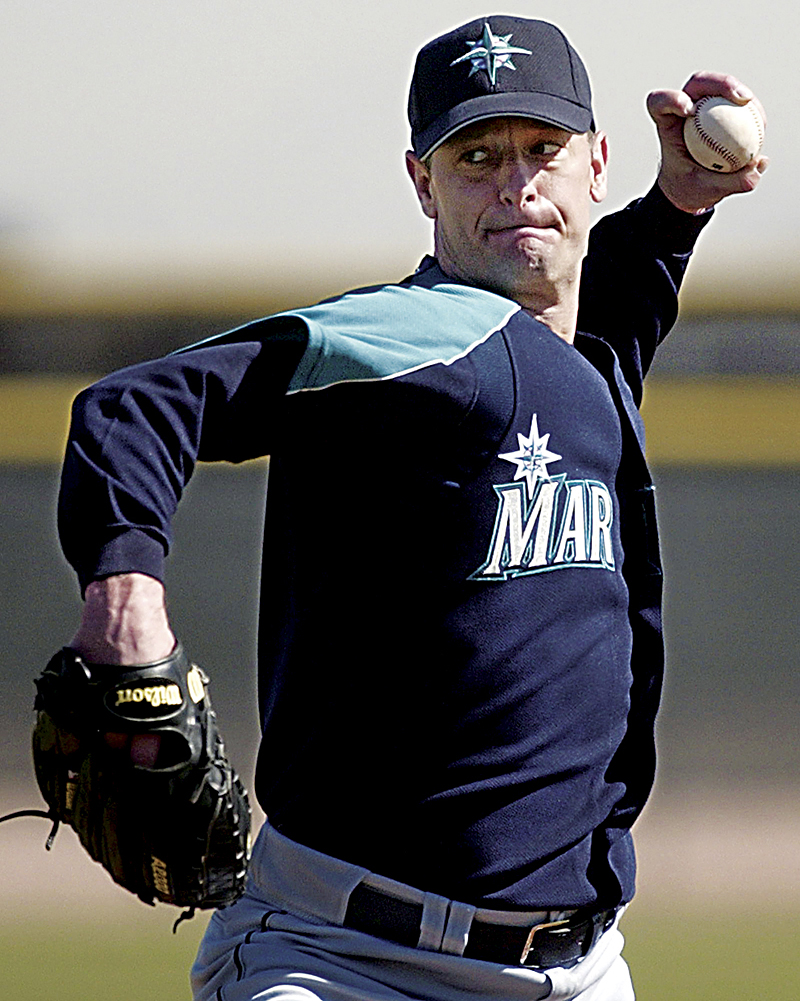Last week Joel Connelly proposed something radical. A consistent critic of Mike McGinn, the P-I columnist nonetheless suggested that, contrary to what his worse-than-Nixon-post-Watergate poll numbers might suggest, the Seattle mayor might still have enough time to reverse his reputation as a fumbling obstructionist.
As evidence of his theory, Connelly said that the disorganization that had marked McGinn’s first two years in office—this is a man, after all, who “winged” his first major speech—seemed to be behind him. Unfortunately for the shelf life of his column, it took only 48 hours for McGinn and his staff to prove Connelly wrong.
First came the kind of blunder that politicians are paid not to make.
Two weeks ago, McGinn invited 20 members of the ethnic and community media to City Hall. The sit-down was designed to enhance McGinn’s standing among Seattle scribes, and he was playing to a friendly crowd: McGinn never would have bested Verizon exec Joe Mallahan had he not received strong support in more minority-heavy South Seattle, and community bloggers were bound to be grateful for quite literally getting the seat at the table they’d been pining for for years.
Yet McGinn managed to botch even this most meat-and-potatoes of media encounters.
A press release said he’d stay for two hours. But instead he slowly snuck out of the room after only 20 minutes, grabbing an apple for the road while the door shut behind him, according to an angry account from Northwest Asian Weekly. Afterward, the Weekly overheard a fellow reporter whisper of the mayor, “He should be fired.”
If Connelly’s theory were sound, and if the mayor and his staff had truly learned from their past mistakes, McGinn would have followed his misstep by sticking the landing. Instead, the mayor stumbled again, turning what was supposed to have been an opportunity to make friends into a chance to add to his ever-growing list of enemies.
Falling on his sword was spokesperson Aaron Pickus, who publicly apologized for the “lack of clarity” that he claimed allowed the bloggers to mistakenly think the mayor would spend his entire evening with them, rather than go home to dinner with his kids. To which one of those bloggers replied: “Bullshit, Aaron.”
According to Rainier Valley Post editor Amber Campbell, who also had kids at home that night and says she shelled out $50 to cover the babysitter and pizza delivery it took to keep them there, Pickus lied. Campbell says the mayor personally told her he would be at the event the entire time, a claim Pickus lamely rebutted by referring back to his original apology.
“If only the Mayor’s Office had the good sense and manners to apologize immediately,” wrote a fuming Campbell, “the news cycle would have sucked it up and spit it out and the whole mess would already be a distant memory.”
But it took less than a full cycle to turn McGinn’s blogger dust-up into old news. Because just two days later he gave the media an even choicer cut of meat to fight over.
On the night of August 16, when the city of Seattle firmly reinforced that it wanted its political leaders to stop dithering and build the deep-bore tunnel that had been debated for a decade, McGinn was famously nowhere to be found. It wasn’t until 10:45 p.m., hours after the ballots had been counted, that the mayor sent out a terse note acknowledging the vote.
Yet last Friday we found out that McGinn’s M.I.A. routine wasn’t a mistake, but actually some form of bizarre media strategy.
A PubliCola records request revealed that McGinn’s staff not only wanted to keep him invisible, they debated the best way to do so, ultimately deciding that unless they could get confirmation that a baseball game would go into extra innings, their best strategy was to plan a date night.
“Assuming a TV final deadline of 10:45pm I’m thinking dinner and a movie,” wrote communications director Beth Hester two days before the vote. “Mariners is good but I’m concerned won’t go long enough.”
Despite the protestations of the now-impaled Pickus, who warned his fellow staffers that the media wasn’t buying McGinn’s message that the tunnel vote wasn’t a referendum on him, chief of staff Julie McCoy didn’t feel it necessary to put her boss under that night’s klieg lights.
“It’s about the tunnel,” she wrote in an e-mail that excoriated both her fellow staff members and the hungry press that wanted access to the mayor. “Go fucking cover the tunnel.”
In his column last week, Connelly said that he was still rooting for McGinn to turn things around. “A hopeless mayor hurts a city,” he said. Fortunately for him, while McGinn may have undermined his original thesis, he at least helped him prove that point.







